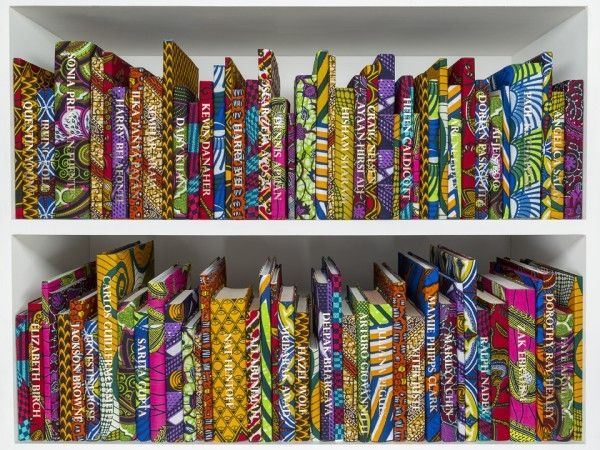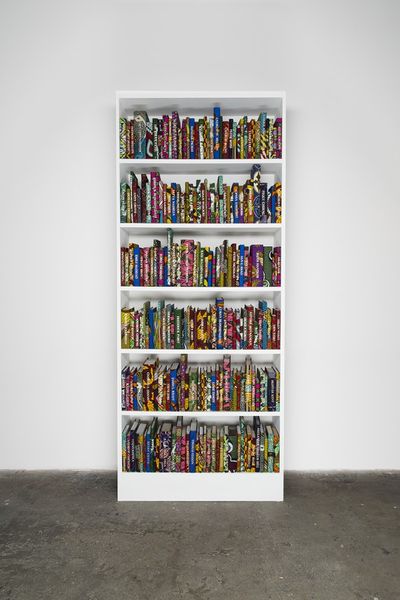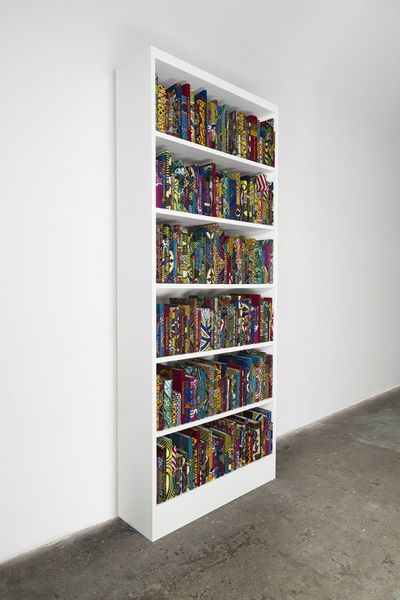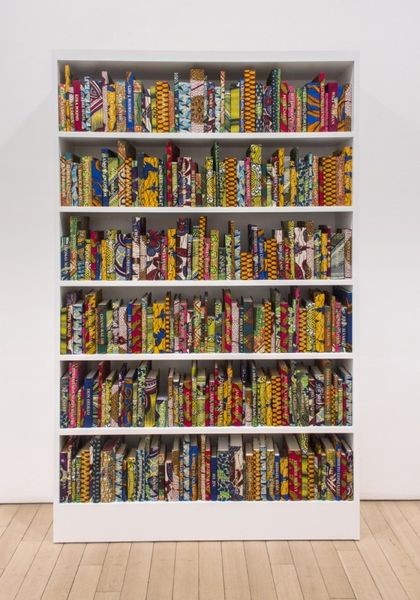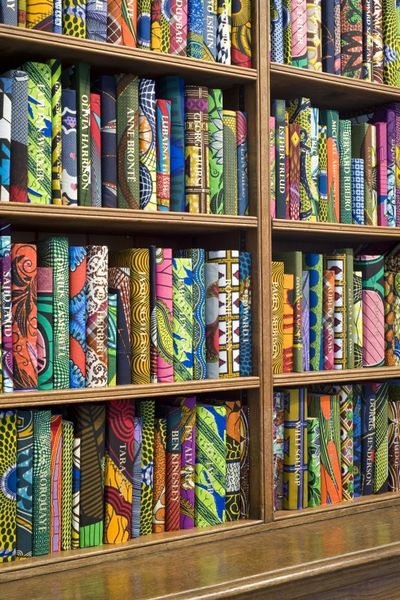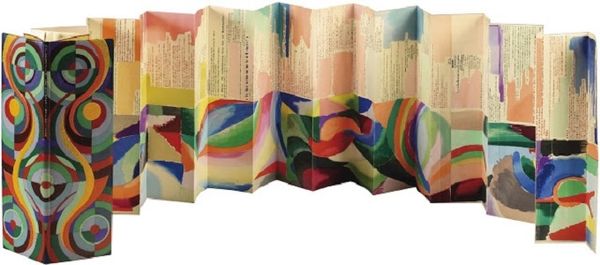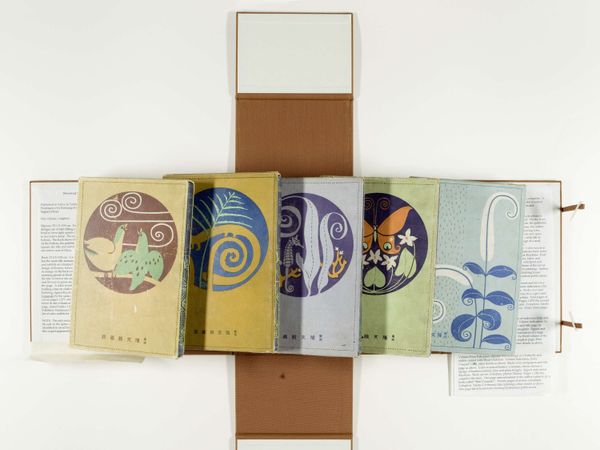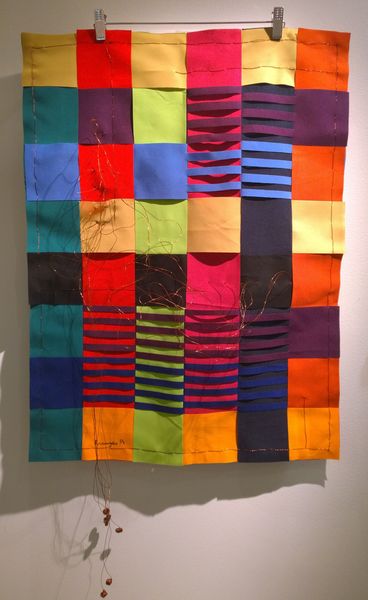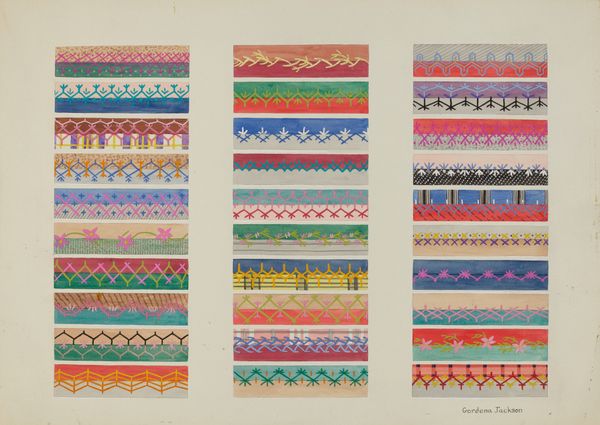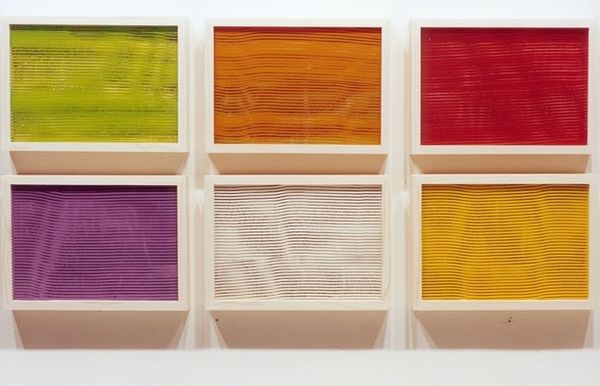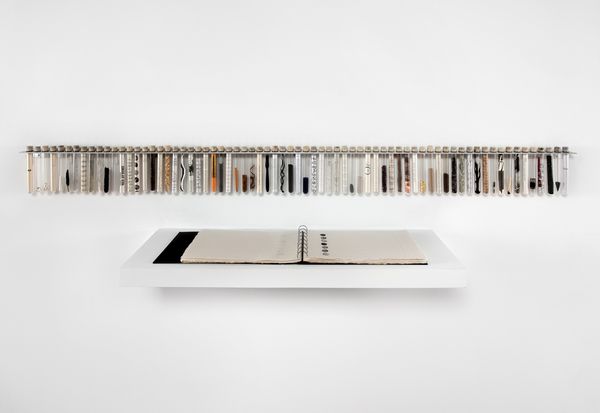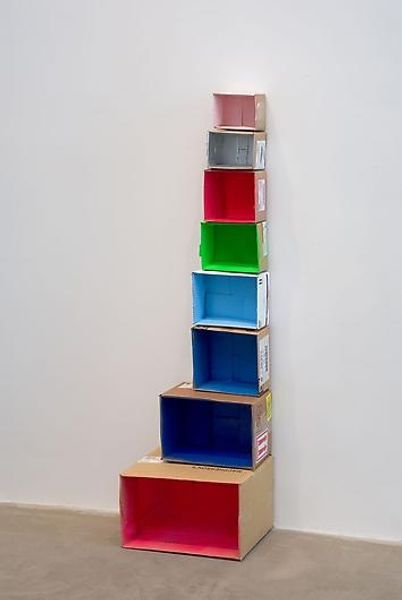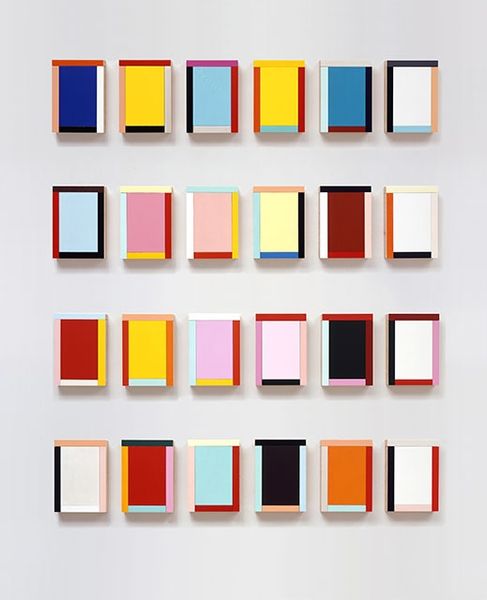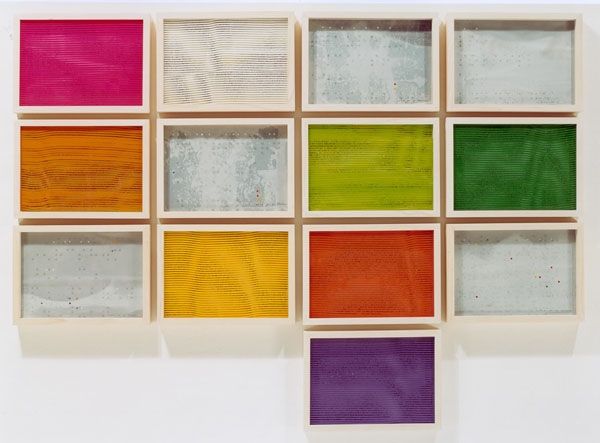
mixed-media, installation-art
#
pattern heavy
#
african-art
#
mixed-media
#
contemporary
#
repeated pattern
#
loose pattern
#
pattern
#
appropriation
#
geometric pattern
#
abstract pattern
#
installation-art
#
repetition of pattern
#
pattern repetition
#
layered pattern
#
funky pattern
#
combined pattern
Copyright: Yinka Shonibare,Fair Use
Curator: Right in front of us, we have Yinka Shonibare's "The American Library Collection (Business Leaders)", created in 2017. It's a mixed-media installation, playing with the very idea of what a library even is. Editor: Wow, it's… intensely patterned! The bright, almost dizzying fabrics covering the books give the whole thing a real pop art feel. I’m strangely drawn to the clash of colours, feels vibrant. Curator: The material choices are key here. Shonibare uses Dutch wax printed cotton, which, despite its association with African identity, has complex colonial roots in Indonesian batik, manufactured by the Dutch, and then sold in West Africa. Think about that as you look at the book titles; it's about global trade and the construction of identity. Editor: Ah, now I see a layer beyond just the colours! Reading some of those names—Bloomberg, Mellon, Trump. All captains of industry, their spines bound in this… charged fabric. The patterns almost seem to vibrate against the stark white shelves, like a visual argument. I keep feeling like I know something I'm not supposed to. Curator: Exactly. By covering these books—effectively rendering them unreadable—Shonibare prompts us to question the narratives of success, power, and the very act of collecting and presenting information. Who gets to write history? What stories are included, and which are conspicuously absent? Editor: It makes me think about how we consume stories. These books *look* inviting, like an accessible knowledge, but the fabric also conceals. So it challenges this simple promise of the "American Dream" they're supposed to represent. Curator: Yes, it creates this beautiful tension between visibility and opacity. Shonibare highlights that history, especially economic history, is always a constructed narrative. Editor: So true. And looking at these individual spines… It's an intriguing subversion, making me consider the price we pay for unbridled growth. It’s quite unnerving actually! It's clever stuff. Curator: I think this work powerfully critiques the legacies of wealth and power. It really encapsulates Shonibare’s incisive way of prompting a deeper consideration about consumption, history, and identity, all through the manipulation of everyday materials and accessible forms. Editor: Ultimately, a beautiful, provoking conversation piece, wrapped in wonderfully intricate designs.
Comments
No comments
Be the first to comment and join the conversation on the ultimate creative platform.
